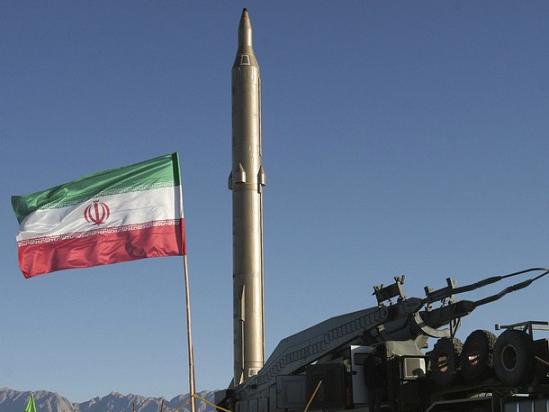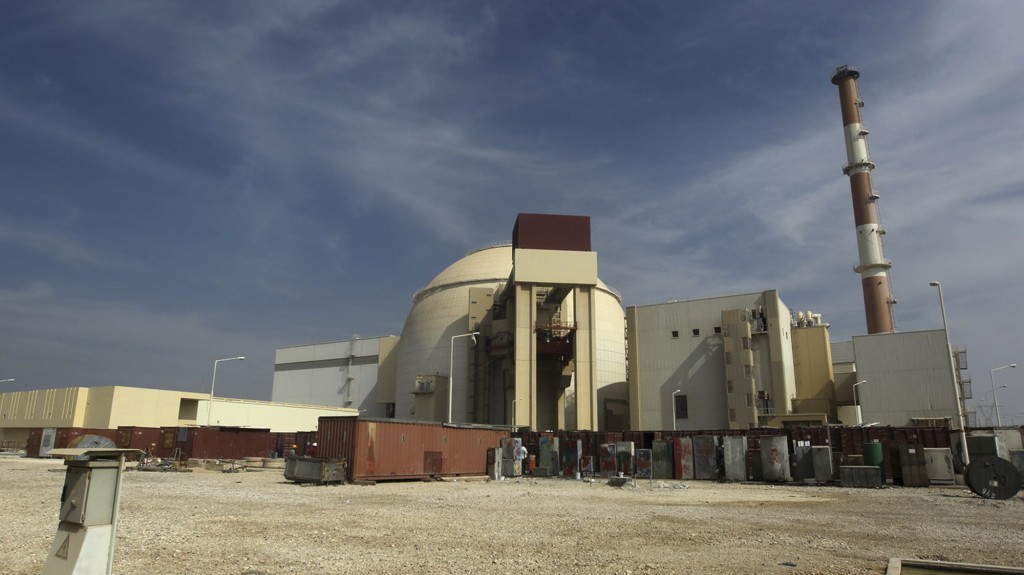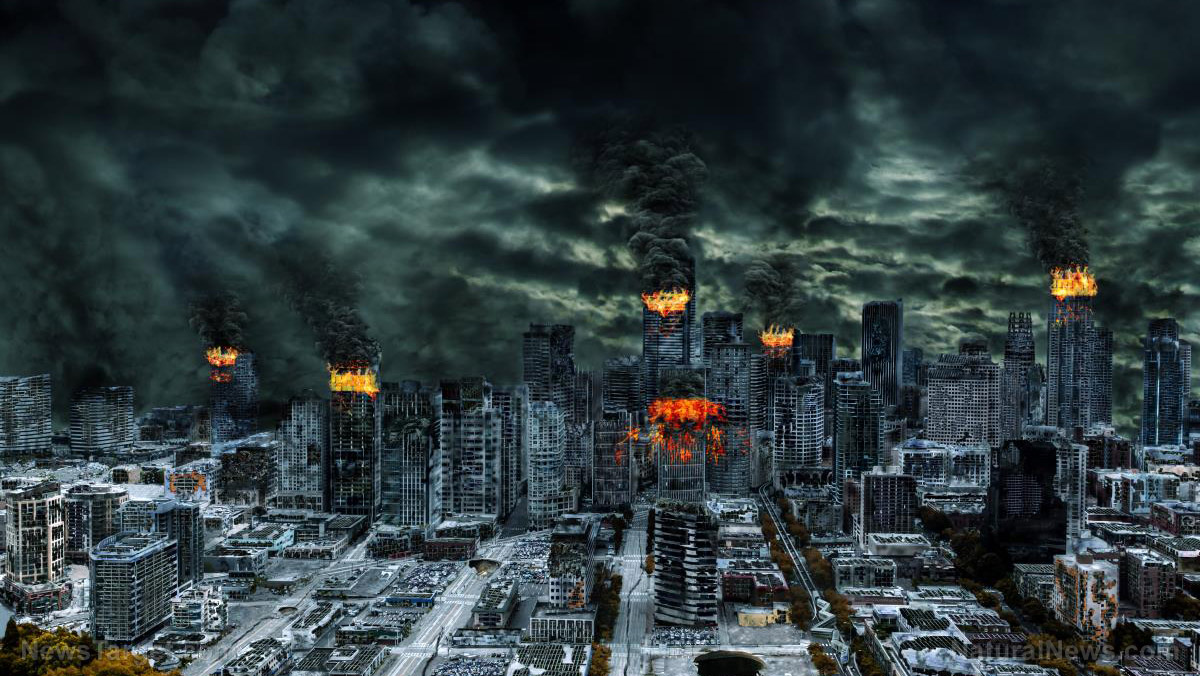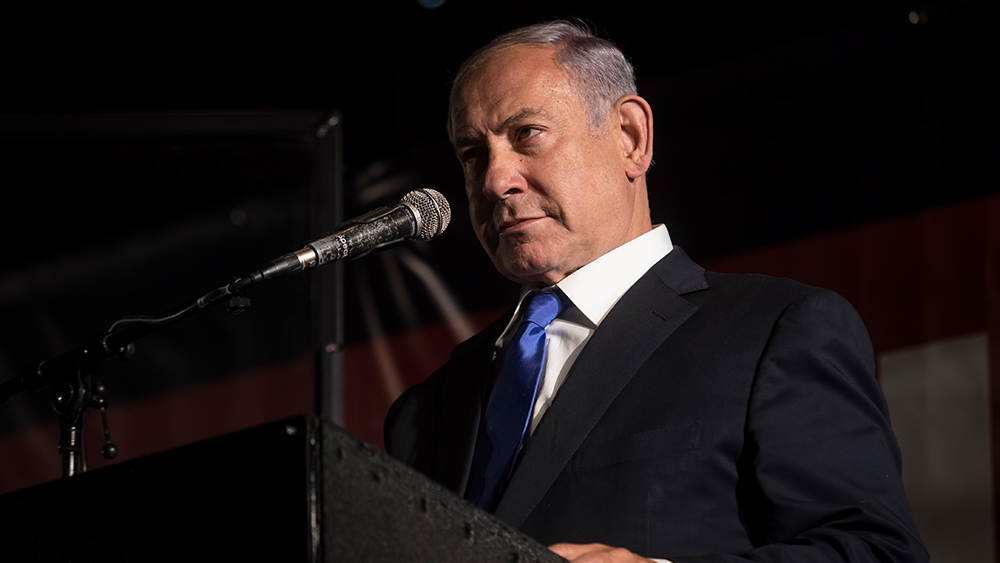Netanyahu convenes war cabinet as Israel prepares for “imminent” retaliation from Iran after airstrike against embassy in Syria
04/05/2024 / By Arsenio Toledo

Israel’s war cabinet has convened to discuss its options following threats of an “imminent” retaliatory attack by Iran in response to Israel’s unprovoked attack on the Iranian embassy in Damascus, Syria.
On Monday, April 1, an Israeli airstrike targeted the Iranian embassy in Damascus that Tehran said killed seven senior members of the Islamic Revolutionary Guard Corps, including Brig. Gen. Mohammad Reza Zahedi, a senior commander in the special forces unit Quds Force. (Related: Israel attacks Iranian embassy in Syria to provoke Iran, rope U.S. into WWIII.)
Zahedi is the most senior Iranian military official to be killed since the United States assassinated former Quds Force commander Qassem Soleimani in 2020.
At least nine other people were killed, including one other Iranian, five Syrian militants from Iran-backed armed groups, one member of the Lebanese group Hezbollah and two civilians – a woman and her son who lived two stories above the same building of the Iranian embassy.
The strike marked the most significant escalation of the conflict in Israel and the rest of the Middle East. In response, both Iranian Supreme Leader Ayatollah Ali Khamenei and Iranian President Ebrahim Raisi vowed retaliation against Tel Aviv.
As per Israeli policy, Tel Aviv has not directly claimed responsibility for the airstrike. However, Israeli Defense Forces (IDF) spokesman Daniel Hagari did claim in a press conference that, according to Israeli intelligence, the building that was targeted “is no consulate and this is no embassy.” He added that the target struck was a “military building of Quds Forces disguised as a civilian structure in Damascus.”
Netanyahu government preparing for Iranian retaliation
In response to Iranian threats of retaliation, Israeli Prime Minister Benjamin Netanyahu has been holding emergency meetings with his war cabinet and other security officials over concerns of an “imminent attack” on Israel or Israeli targets abroad.
While continuing to not take responsibility for the airstrike, Netanyahu claimed that Iran has been operating against Israel for years “both directly and via its proxies, and therefore Israel is operating against Iran and its proxies, both defensively and offensively.”
“We will know how to defend ourselves and will operate according to the basic principle of whoever is harming or planning to harm us – we will harm him,” he added in a statement meant to dissuade any Iranian retaliation.
Minister of Defense Yoav Gallant, in one of the closest statements to a confirmation that Israel was behind the airstrike, said during a discussion with other members of the Israeli parliament’s Foreign Affairs and Security Committee that Israel operates “everywhere, every day to prevent the strengthening of our enemies and to make it clear to everyone who acts against us, all over the Middle East, that the price for acting against Israel will be a heavy price.”
The country said the IDF has been put on high alert in preparation for the Iranian response. Air defenses are being strengthened, intelligence units are on the lookout, reservist units have been called up and weekend vacations for active units have been canceled.
Experts and analysts note that Netanyahu’s government is concerned that Iran could respond directly by launching missiles from its territory, rather than through its proxies. Maj. Gen. Amos Yadlin, former head of the IDF Military Intelligence Directorate, recently stated in an interview with Israeli television station Keshet 12 that “I won’t be surprised if Iran fires directly at Israel.”
Alan Mendoza, executive director of the London-based think tank the Henry Jackson Society warned that the world must take Iranian warnings of retaliation seriously. “They’ve laid down their marker, so we can only assume they’re going to do it,” he said.
“It could be a series of global targets. It could be an attempt to strike Israel again in an Oct. 7-style war – this time with Lebanon,” he added, referring to Hamas’ Oct. 7 attack on Israel which killed over 1,200 Israelis.
“There are many options the Iranians could employ and the obvious option would be to use Hezbollah to create more pressure on Israel and to take out some targets,” continued Mendoza. “Or they could look to other proxies in the Houthis in Yemen who have been firing missiles towards Israel and also groups in Iraq who have also been trying to fire missiles.”
Mendoza further warned that Iran may even orchestrate “external global terrorism” attacks “against Israeli or even Jewish targets.”
Watch this clip from Southfront Press discussing how the Israeli airstrike on the Iranian embassy in Damascus brings the Middle East closer to the brink of total war.
This video is from the channel The Prisoner on Brighteon.com.
More related stories:
Israeli strikes target emergency health centers in southern Lebanon, killing paramedics.
Latest Israeli attack on Al Shifa Hospital in Gaza KILLS 50 civilians, including several children.
Sources include:
Submit a correction >>
Tagged Under:
Benjamin Netanyahu, big government, chaos, conflict, Damascus, Hezbollah, IDF, Iran, Israel, Israeli Defense Forces, Israeli war cabinet, Lebanon, national security, Syria, World War III, WWIII
This article may contain statements that reflect the opinion of the author
RECENT NEWS & ARTICLES
COPYRIGHT © 2019 Dangerous.News
All content posted on this site is protected under Free Speech. Dangerous.News is not responsible for content written by contributing authors. The information on this site is provided for educational and entertainment purposes only. It is not intended as a substitute for professional advice of any kind. Dangerous.News assumes no responsibility for the use or misuse of this material. All trademarks, registered trademarks and service marks mentioned on this site are the property of their respective owners.




















